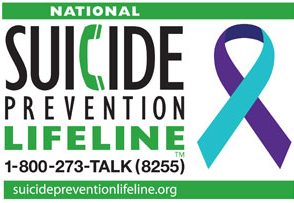Coping | IBD

“Our stories are all so many things: Heavy and light. Beautiful and difficult. Hopeful and uncertain. But our stories aren’t finished yet. There is still time, for things to heal and change and grow. There is still time to be surprised. We are still going, you and I. We are stories still going.”
-Jamie Tworkowski, “We are stories still going.”
Like many of the beautiful brave girls who’ve shared their stories on this blog, my story has at times been incredibly complicated. Nearly seven years ago, at the end of September 2009, I began having horrible pains in my stomach. I wasn’t keeping down any food, and I felt weak all the time. I saw a few doctors, had a few tests, and my “nervous stomach” was sent on its way. Although I continued eliminating things from my diet, and continued losing weight in a manner in which I was not comfortable with, I tried to go about my life. I was 23 years old, I had just started a job the month prior with a non-profit organization in Chicago that I cared very much about, and I thought, like other challenges I’d faced in my life, I could just power through it.
Eight months later, I experienced my first colonoscopy/endoscopy. When I woke up, I felt devastated that ‘nothing was found.’ How could I be so sick, without anyone understanding what was causing it? For several years, I bounced around between GI doctors, I underwent many tests, tried more than several medications, and desperately attempted to track everything I ate and everything I felt, begging for some sort of correlation that I could understand.
After approximately a dozen hospitalizations between October 2011 and August 2013 at various hospitals, I picked up some small diagnoses – Mastocytic Enterocolitis, Waldmanns Disease, an episode of Small Intestinal Bacterial Overgrowth (SIBO), and an extensive collection of medications, but nothing that really improved my quality of life.
I was then introduced to Dr. Robert Carroll at UIC. We started working together in the fall of 2013, where he instantly understood the severity of my case and the ways in which it was impacting my life. However, as any chronic patient has likely come to learn, a new doctor sometimes means a lot of learning before new realizations are made. There were no quick improvements to my life, and I found myself struggling with a sadness I hadn’t experienced before.
My first instinct was to pull away. I didn’t want anyone I knew to see me like that. I deactivated my Facebook account and didn’t respond to many of the messages I received via text or email. I spent a lot of time binge watching TV, trying desperately to escape the reality that felt incredibly overwhelming and extremely painful (both physically, and mentally).
A friend in the Inflammatory Bowel Disease community connected me to a previous colleague of hers who worked as a therapist specializing in chronic illness patients. Although I had not yet been diagnosed with IBD, I had been introduced to, and become friends with many individuals who advocated in the community. And to the incredible friend who, without questions or fanfare, aided me in finding help – there will never be enough words to thank you.
My therapist (who I’ve worked with for more than 3 years now) got me through the roughest season of my life. My declining state of health and lack of medical explanation had me suffering with pretty severe depression and the unpredictability and devastating effects that come with intestines that work at minimum levels caused all sorts of anxiety I had never faced before.
During that chapter of my life, which lasted nearly seven months, I turned to anything that would help me find solace in a world that I had to convince myself daily I still needed to be a part of. One of the resources I relied heavily on was an organization called To Write Love on Her Arms (TWLOHA). An organization I had been introduced to several years prior provided me more hope than I ever could’ve asked for. In their initiatives to connect people to help, to create a community of hope, to challenge mental health stigma, and to invest in treatment and recovery, I came across so many incredible people who helped me to find light in the darkness. I’d spend days combing their blog, copying down quotes and notes to myself about each writers experience, and how it validated the experience I was trying to live through. To the individuals that were brave enough to share their stories – thank you, from the bottom of my heart, for helping me to continue to live mine.
In the two years since that time, I have learned (to the best of my abilities) how to manage my depression and anxiety with a combination of lifestyle changes, medication, and talk therapy. It was a trial-and-error type process that I had no desire to fight through, but fighting through it is what gave me my life back.
In the summer of 2014, before the fog of depression had even lifted, I was diagnosed with Indeterminate Colitis. I had some temporary improvements with medications, and the removal of my gall bladder provided me about six months of relief from the daily vomiting and diarrhea. But in the winter of 2015, severe abdominal pain returned, bringing my life to a halt. With the persistence of a very caring physician and the most understanding partner, I underwent new rounds of testing, including the pill camera and a push-enteroscopy. In January of 2016, almost six and a half years after getting sick, I was finally diagnosed with Crohn’s disease.
Several events in my life, including the challenges outlined above, led me back to the organization TWLOHA time and time again. In the time since then, I have blogged for their website, shared their resources with friends, fundraised to support their mission, attended events put on by them and in celebration of their work, and now, in the fall of 2016, I am working with some incredible individuals to bring the knowledge of and resources from To Write Love on Her Arms to the IBD community.
Girls with Guts and other advocate groups have been discussing the devastating effects of having Crohn’s disease or Ulcerative Colitis, and bringing to light the ways in which invisible illness have affected our lives. But what we really want to have a heart-to-heart about now is the other invisible illnesses that often partner with IBD – depression, anxiety, suicidal ideations, and other mental health challenges.
Jamie Tworkowski, founder of TWLOHA, has written many incredible things, but “We are stories still going,” written in November of 2013 and quoted at the beginning of this blog, has renewed my strength and my spirit so many times.
It also captures the sentiment behind the reason Girls with Guts is blogging in support of National Suicide Prevention Week (September 5-11, 2016).
“Our stories are all so many things: Heavy and light. Beautiful and difficult. Hopeful and uncertain. But our stories aren’t finished yet.”
IBD has made our lives hard enough. We are lucky to have the Girls with Guts organization, and the incredible people it’s connected us to since its inception. But this week, we want to make sure we’re talking about something that’s all too often swept under the rug – IBD and mental health.
Over the next several days, you will hear from other bloggers and friends in this community and how IBD has impacted their mental health. You’ll hear stories of devastation, but you’ll also hear stories of hope and help too. You’ll also get the chance to fill out an anonymous survey, answering questions that will allow us to identify where in the community there is a deficit of resources, and how we will fill those holes.
If nothing else, we want to make sure you have the information you need when life feels too hard to handle. Please, reach out. There are so many people that want to help you.
With Hope,
Amanda

National Suicide Prevention Lifeline – 1-800-273-TALK (1-800-273-8255)

Crisis Text Line – Text “TWLOHA” to 741-741
[Both resources are available 24×7]

So happy you’re highlighting this huge need in the IBD community. Thanks for your vulnerability, sharing your story, and for raising awareness. #fightthestigma
@Steph Horgan – your comment means the world to me, as does your friendship and the help you so selflessly offered a few years back. I am trying to do everything in my power now to bring these resources to the IBD community, one post at a time 🙂 #fightthestigma #NationalSuicidePreventionWeek16 #IKeptLiving